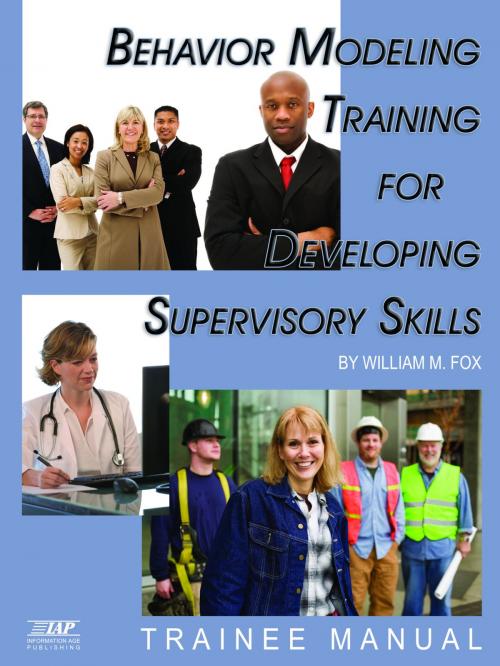Behavior Modeling Trainee Manual
Training for Developing Supervisory Skills
Business & Finance, Management & Leadership, Production & Operations Management, Management, Human Resources & Personnel Management| Author: | William M. Fox | ISBN: | 9781617352454 |
| Publisher: | Information Age Publishing | Publication: | April 1, 2009 |
| Imprint: | Information Age Publishing | Language: | English |
| Author: | William M. Fox |
| ISBN: | 9781617352454 |
| Publisher: | Information Age Publishing |
| Publication: | April 1, 2009 |
| Imprint: | Information Age Publishing |
| Language: | English |
This Trainee Manual is designed to be used in conjunction with an instructordirected program based on material in Behavior Modeling Training for Developing Supervisory Skills: Instructor Manual, by the same author. Behaviormodeling training is a form of skilldevelopment training that is distinguished by the manner in which it integrates “knowledge about” and “experience with.” Both of these elements are essential for effective skill training. To illustrate: think of what we must do to master some skill, such as dancing, driving a car, or making a presentation. We must go beyond merely reading about, hearing about, or observing the techniques involved—we must add guided practice, feedback, and adjusted practice. Various sets of learning points—learningpoint modules—have been developed for various training needs; such as, for Delegating Work, Handling a Complaining Employee, Handling Insubordination, Giving Recognition, Conducting a Performance— Review Interview, Mediating Between Conflicting Individuals, and so on. Examples of these, along with proecdures for developing new modules, are presented in the Instructor Manual Your initial training will utilize two modules for Dealing With an Individual Performance Problem.
This Trainee Manual is designed to be used in conjunction with an instructordirected program based on material in Behavior Modeling Training for Developing Supervisory Skills: Instructor Manual, by the same author. Behaviormodeling training is a form of skilldevelopment training that is distinguished by the manner in which it integrates “knowledge about” and “experience with.” Both of these elements are essential for effective skill training. To illustrate: think of what we must do to master some skill, such as dancing, driving a car, or making a presentation. We must go beyond merely reading about, hearing about, or observing the techniques involved—we must add guided practice, feedback, and adjusted practice. Various sets of learning points—learningpoint modules—have been developed for various training needs; such as, for Delegating Work, Handling a Complaining Employee, Handling Insubordination, Giving Recognition, Conducting a Performance— Review Interview, Mediating Between Conflicting Individuals, and so on. Examples of these, along with proecdures for developing new modules, are presented in the Instructor Manual Your initial training will utilize two modules for Dealing With an Individual Performance Problem.















